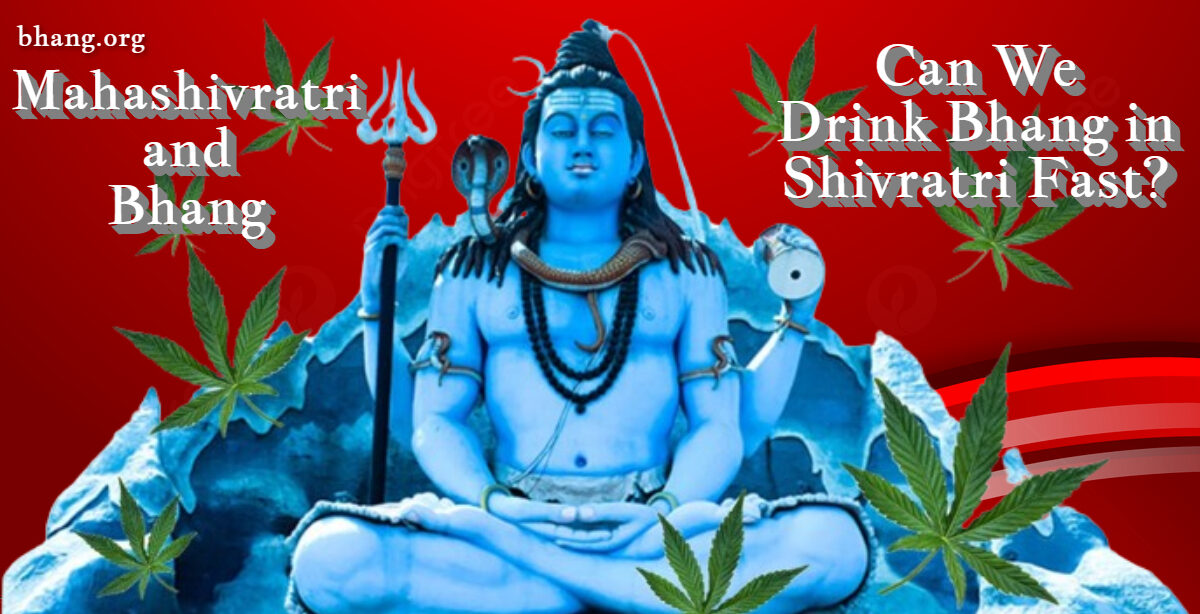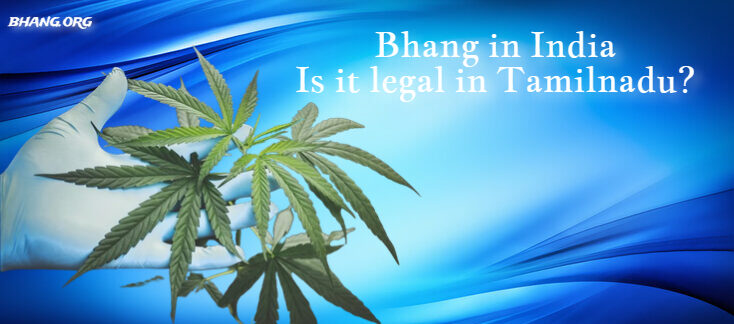
Mahashivratri and Bhang: Can we drink bhang in Shivratri fast?
Mahashivratri and Bhang: In a world filled with chaos, Shivratri isn’t just a night of reverence; it stands as a symbol of profound spiritual awakening, purity, and a connection with the Supreme Soul, Shiva. Let’s delve into the essence of Shivratri, exploring the importance of awakening, fasting, and the symbolic use of bhang, guiding us toward a golden era of purity and peace.
Story of Shiva and Bhang: Mahashivratri and Bhang
According to legend, after the Samudra Manthan event described in the scriptures, Shiva consumed Bhang. During the churning of the ocean, a poison called Halahala emerged, threatening the universe. To protect creation, Shiva drank the poison, which caused immense heat within him.
In order to cool Shiva down, the Devas prepared Bhang and offered it to him.
Why do followers of Shiva enjoy consuming bhang on Maha Shivratri?
Maha Shivratri is the auspicious night commemorating the wedding of Lord Shiva and Goddess Parvati. Bhang holds significant cultural importance on this occasion, often distributed as “Shiv Prasad” in places like Varanasi.
Devotees celebrate Maha Shivratri by consuming bhang, considering it a special part of the festivities. The preparation of bhang is considered an art in various places, with its grinding being a revered ritual. Bollywood movies often feature stars dancing to songs with lyrics about bhang, such as “Jai Jai Shiv Shankar” from “Aap Ki Kasam” and “Itna Mazaa Kyun Aa Raha Hai” from “Yeh Jawaani Hai Deewani.”
Bhang is closely linked with Lord Shiva, with the popular drink Thandai made from milk and bhang being readily available during Maha Shivratri. In Hindu scriptures, bhang is referred to as Vijaya, and devotees offer it along with other items like dhatura and tambul as prasad during worship, as they are believed to be favored by Lord Shiva. This tradition explains why devotees consume bhang, especially on Maha Shivratri.
But do you know why Bholenaath loved bhang?
Legend has it that Lord Shiva, while wandering in the forest, came across cannabis plants where he rested. Upon waking up, he found himself drawn to the cannabis leaves and enjoyed consuming them. This is said to be how Lord Shiva developed a fondness for bhang. Today, devotees partake in bhang to honor Lord Shiva and celebrate Maha Shivratri.
Mahashivratri and Bhang: Why Lord Shiva Drinks Bhang?
Let’s explore the reasons behind Lord Shiva’s consumption of bhang and examine the various narratives surrounding Shiva’s relationship with this substance.
The Vedas:
According to the Vedas, during the churning of the ocean by the Gods and demons to obtain the nectar, a drop of this divine substance fell on Mount Madra. From this droplet emerged a plant, and the beverage crafted from its leaves became a beloved choice among the Gods, including Lord Shiva. It’s said that Shiva then brought cannabis down from the Himalayas for the delight of humanity.
Sister of Ganga:
Bhang is also thought to be the sister of Goddess Ganga, hence their depiction as residing side by side on Shiva’s head. Alternatively, some interpret the cannabis plant as another manifestation of Parvati, who dwells alongside her sister Ganga with Shiva.
Soma Rasa:
Ancient texts often mention the Gods consuming Soma rasa, which is sometimes equated with bhang. However, it remains unclear whether Soma and Bhang are identical or distinct beverages.
Shiva & Bhang:
It’s believed that since Lord Shiva is perpetually immersed in deep meditation, bhang aids him in maintaining a state of complete bliss and concentration. Consequently, sadhus and monks consume bhang and smoke marijuana to attain a blissful state akin to Shiva’s.
These are a few theories explaining why Lord Shiva drinks bhang. Regardless of the reason, consuming bhang holds great significance during Shivaratri, believed to alleviate ailments and relieve pain.
Shiva and Bhang: Mahashivratri and Bhang
Awakening: Moving from Darkness to Divine Light
Shivratri, representing Shiva’s night, marks a crucial moment of spiritual revival—a transition from darkness to light. It signifies the descent of the Incorporeal God Shiva into our realm, enlightening our minds with drops of spiritual wisdom. This divine intervention rouses us from the slumber of ignorance, reminding us of our true essence—not merely as bodies with identities, but as pure, tranquil souls. This awakening serves as the initial step in transforming the iron age (Kali Yuga) of moral decay into a golden age (Satya Yuga) of righteousness.
Fasting: A Commitment to Purity and Divine Connection
Fasting, or ‘Upvas’, during Shivratri isn’t just about abstaining from food; it symbolizes a state of proximity to God, residing in a realm of mental and spiritual purity. By pledging to purify our thoughts, words, actions, and relationships, we allow our minds to become vessels for divine wisdom. This purity facilitates divine remembrance, making our connection with God natural and effortless. Thus, fasting on Shivratri transcends the physical realm, nurturing an inner environment where divine qualities thrive.
Bhang: Symbolizing Spiritual Elevation
While the physical consumption of bhang is a common ritual, its spiritual counterpart involves elevating the soul with divine knowledge and power. This spiritual elevation awakens us to our inherent virtues of peace, purity, and bliss, steering us away from the pursuit of external happiness. It signifies the soul’s elevated state, infused with God’s wisdom, sustaining us in a state of joy and divine love that surpasses the temporal.
The Path to a New Beginning
Shivratri beckons us to embark on a journey of self-transformation, guiding us from darkness to divine light. By embracing the virtues of purity, engaging in introspection, and nurturing a profound connection with the Divine, we lay the groundwork for a new world. It’s an invitation to let go of our faults, like presenting toxic flowers, and embrace our inherent divinity, marking the beginning of a prosperous era.
Essence
Shivratri transcends mere ritualistic observance; it’s a profound spiritual odyssey that provides a roadmap from the chaos of the iron age to the purity and peace of a golden era. As we internalize the essence of awakening, fasting, and spiritual elevation, we draw closer to understanding our true selves and the divine plan for humanity. Let this Shivratri serve as a turning point, a commitment to purity, and a stride toward a life imbued with divine qualities.
Tips for Enjoying Bhang Safely and Mindfully on Shivaratri
The Importance of Bhang
Bhang, derived from the leaves and buds of the cannabis plant, has been an integral part of Indian culture for centuries. Typically consumed as a beverage mixed with milk, spices, and sugar, bhang is revered for its medicinal properties, especially during Maha Shivaratri.
Tips for Safely Enjoying Bhang with Mindfulness
Understand Your Limits: Whether you’re a seasoned user or trying bhang for the first time, it’s crucial to know your tolerance levels. Cannabis affects individuals differently, and excessive consumption can result in adverse effects such as anxiety and impaired judgment. Start with a small dose and gradually increase it, considering the potency of the bhang.
Consume Responsibly: Maha Shivaratri is a spiritual occasion, and the consumption of bhang should enhance the festivities without overshadowing the essence of the festival. Avoid overindulgence or mixing bhang with other intoxicants. Instead, focus on savoring its flavors and experiencing the relaxation it provides.
Stay Hydrated: Bhang can cause dehydration, so it’s essential to drink plenty of water or other non-alcoholic beverages during the celebration. Coconut water or herbal teas can also serve as refreshing alternatives.
Eat Well: Having bhang on an empty stomach can amplify its impact and cause discomfort.
Before drinking bhang, ensure you’ve had a nutritious meal. Opt for light, easily digestible foods that offer sustained energy throughout the day.
Plan Transportation: If you’re attending Maha Shivaratri events away from home or consuming bhang at social gatherings, make transportation arrangements in advance. Refrain from driving or operating machinery while under the influence of bhang, as it can impair motor skills and reaction times. Arrange for a designated driver or utilize public transportation for a safe journey.
Respect Local Laws: While bhang holds cultural significance in certain regions of India, its consumption may be regulated or prohibited elsewhere. Familiarize yourself with local laws and regulations regarding cannabis consumption to avoid legal complications. Obtain bhang from reputable sources and ensure it’s consumed in compliance with applicable laws.
Practice Mindfulness and Moderation: Consume bhang mindfully and moderately.
Take time to appreciate each sip and reflect on the spiritual significance of the occasion. Engage in meaningful conversations, participate in rituals, and immerse yourself in the festive ambiance while remaining aware of your surroundings and inner state.
Conclusion:
In conclusion (Mahashivratri and Bhang), the association of bhang with Lord Shiva and its significance during Maha Shivaratri reflects the rich cultural heritage and spiritual traditions of Hinduism. While bhang plays a role in enhancing the festive atmosphere and promoting spiritual awareness, it’s essential to approach its consumption with mindfulness and respect for both cultural traditions and legal regulations. By understanding the spiritual symbolism behind bhang and observing responsible consumption practices, devotees can partake in Maha Shivaratri celebrations in a meaningful and fulfilling manner.
FAQs about Mahashivratri and Bhang
Why is bhang associated with Lord Shiva?
Bhang is believed to have originated from a drop of the nectar of immortality that fell during the churning of the ocean. It is considered sacred and is associated with Lord Shiva’s worship, symbolizing spiritual elevation and bliss.
What is the significance of consuming bhang on Maha Shivaratri?
Consuming bhang on Maha Shivaratri is considered auspicious as it is believed to please Lord Shiva. It is also a cultural tradition that enhances the festive spirit and promotes spiritual awareness among devotees.
Is consuming bhang legal during Maha Shivaratri?
While bhang holds cultural and religious significance during Maha Shivaratri, its consumption may be subject to legal regulations depending on the region. It’s important to be aware of local laws and consume bhang responsibly.
How does bhang contribute to the spiritual experience of Maha Shivaratri?
Bhang is believed to aid in achieving a blissful state and enhancing spiritual awareness. Its consumption is seen as a way to connect with the divine and deepen one’s devotion to Lord Shiva during Maha Shivaratri celebrations.
Are there any health risks associated with consuming bhang?
Like any intoxicating substance, excessive consumption of bhang can lead to adverse effects such as anxiety and impaired judgment. It’s important to consume bhang mindfully and in moderation to avoid health risks.


